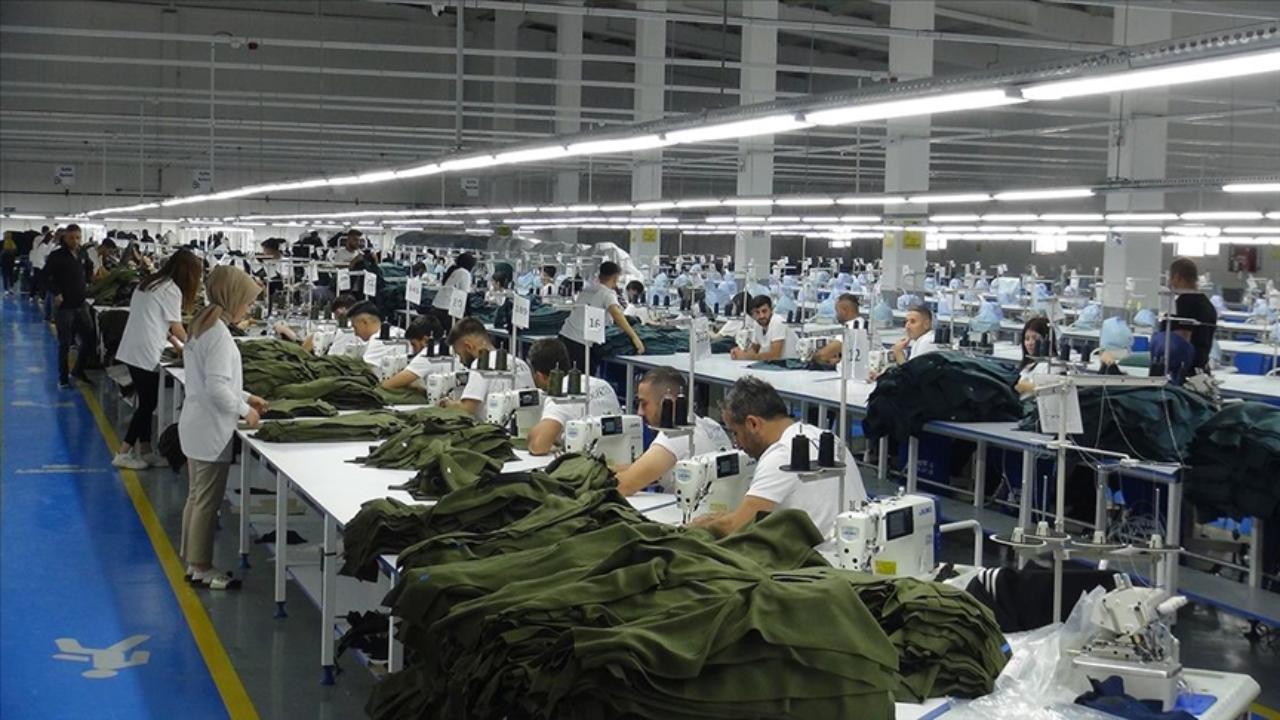Turkish textile industry in crisis as Egypt shines as inevitable choice for producers

TURKISH TEXTILE INDUSTRY IN CRISIS AS EGYPT SHINES AS INEVITABLE CHOICE FOR PRODUCERS
Türkiye's textile sector is in deep crisis with massive layoffs due to increasing prices, and inflation, prompting an exodus of textile giants to Egypt. Turkish producers, especially with an international customer profile, increasingly see Egypt as an unavoidable market with incentives, a central location, and low costs.
While producers are looking for better profit chances, Egypt's booming production base forces Turkish companies to lay off hundreds of thousands of employees.
Egypt is rapidly positioning itself as a regional hub for textile production, attracting growing interest from Turkish manufacturers struggling with rising costs and shrinking margins at home, according to Sherin Hosni, Executive Director of the Apparel Export Council of Egypt, in an interview with Türkiye Today.
Speaking at a business-to-business event in Istanbul on Wednesday, Hosni outlined the country’s appeal to foreign investors. “We offer a one-stop shop for investors—less bureaucracy, tax advantages, and direct export subsidies,” she said at the event, which was jointly organized by the Apparel Export Council of Egypt and Turkish consultancy firm Ren Sourcing.

Turkish and Egyptian textile professionals engage in bilateral meetings during a sourcing event co-organized by Ren Sourcing and the Apparel Export Council of Egypt in Istanbul, on June 25, 2025. (Photo via LinkedIn/apparel-export-council-of-egypt)Lower costs, export perks fuel investor shift to Egypt’s apparel sector
She highlighted strategic investment zones such as the Suez Canal Economic Zone, the Minya region, and Egypt’s expanding Upper Egypt corridor, noting their combination of logistical strength and a reliable, skilled labor force. Hosni also emphasized Egypt’s global market access, stating that “60% of Egypt’s textile exports go to the United States,” positioning the country as a key gateway to high-demand markets.
She also pointed to the country’s proximity to raw materials and the overall quality of its textile products as additional factors enhancing Egypt’s competitiveness. In particular, she highlighted the global reputation of Egyptian cotton—known for its long fibers, softness, and durability—which provides a strong foundation for high-end textile manufacturing and attracts premium international buyers seeking consistent quality.
In comparing Egypt to other regional manufacturing hubs, Hosni noted that top investors in Egypt’s textile sector currently include China, Indonesia, and Pakistan, and added that Türkiye is well-placed to expand its presence in this competitive environment.

Türkiye follows 'Italian model' as sourcing strategy shifts toward branding
Sibel Ege, founder of Turkish consultancy and supply chain firm Ren Sourcing, emphasized that Türkiye’s textile industry is undergoing a long-term structural transformation, gradually moving beyond its historical identity as a low-cost manufacturing hub. “Turkish textile follows the Italian model—focused on building brands and export know-how rather than just cost-based production,” she explained. Ege noted that the industry is increasingly prioritizing high-value components such as original design, fabric innovation, sustainability, and flexible production tailored to the specific needs of global buyers.
She underlined that this evolution stems from Türkiye’s established experience in fast fashion, its proximity to European markets, and its skilled workforce, all of which enable the country to offer integrated services from design and sampling to shipment and post-sale support. “Rather than competing solely on price, companies are now positioning themselves as strategic partners for international retailers, capable of managing end-to-end supply chains,” she added.
However, Ege also acknowledged that the shift toward higher value-added production has not insulated manufacturers from domestic economic pressures. Persistent inflation, rising input costs, and currency instability continue to erode margins. As a result, even firms with strong branding and technical capacity are increasingly compelled to relocate physical production to countries like Egypt, where lower operational costs and investor incentives create a more sustainable environment for large-scale manufacturing.

Türkiye’s domestic sector falters under cost pressure
Egypt already hosts around 1,700 Turkish companies with over $3 billion in combined investments, particularly concentrated in the textile, apparel, and chemical industries, according to the Türkiye-Egypt Business Council. Nearly 200 Turkish-run textile factories are currently operating across Egypt.
While investment flows abroad accelerate, Türkiye’s domestic textile and apparel industries continue to decline. According to the Turkish Social Security Institution (SGK), the sector lost 65,581 jobs in 2024, with apparel accounting for 52,768 of those and textiles for 12,813. For the first time in four years, total employment in the sector dropped below 1 million. The number of active companies also fell from 61,352 to 59,101.
Export data further confirms the industry’s contraction. Türkiye’s textile exports in 2024 amounted to $9.5 billion, marking a marginal decline. Ready-to-wear apparel exports fell 6.9% to $17.9 billion, while leather and related products saw a sharp drop of 17.9% to $1.5 billion, according to Turkish Exporters Assembly (TIM) figures.
